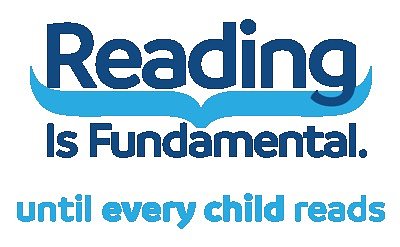
Reading Beyond the Books: Corporate Partnerships Fuel Literacy & STEM Access
A collaboration between Reading Is Fundamental and Trane Technologies is expanding literacy and STEM education for underserved students. But it's part of a larger trend of corporate partners stepping up to close opportunity gaps.
Reading Beyond the Books: Corporate Partnerships Fuel Literacy & STEM Access
By Timothy Bell
As school districts nationwide grapple with learning loss exacerbated by the pandemic, a growing number of corporations are stepping forward to support literacy and STEM education initiatives. One prominent example is the ongoing collaboration between Reading Is Fundamental (RIF) and Trane Technologies, a global climate solutions provider, which is bringing books and hands-on learning experiences to students in underserved communities. While this partnership is demonstrably impactful, it's part of a broader trend of businesses recognizing the critical need to invest in future generations.
For decades, RIF has been a cornerstone of childhood literacy, distributing millions of books to children across the United States. However, the organization’s reach extends beyond simply providing reading material. In partnership with Trane Technologies, RIF’s ‘Read to Succeed’ program delivers targeted literacy kits and fosters engagement with STEM fields, aiming to build a pipeline of future innovators. The collaboration, funded by the Trane Technologies Charitable Foundation, has impacted over 17,000 students since 2021, distributing over 18,000 books across multiple states.
“Access to books and positive reading role models is fundamental, but it's not enough,” explains a representative from RIF. “We need to inspire curiosity and show children how literacy connects to real-world careers. That’s where the partnership with Trane Technologies is particularly powerful. They’re not just donating money; their employees are actively involved in reading to students, sharing their expertise, and demonstrating how STEM skills are used to solve pressing global challenges.”
Beyond Book Distribution: A Holistic Approach
The partnership’s impact extends beyond simply getting books into the hands of children. RIF and Trane Technologies have focused on creating sustained engagement through a multi-faceted approach. This includes providing literacy kits tailored to different age groups, organizing classroom read-alouds led by Trane Technologies volunteers, and offering virtual visits with engineers and innovators who share their career paths and expertise. The program also emphasizes culturally relevant literature and materials, ensuring that all students see themselves represented in the stories they read.
In Fresno, CA, Minneapolis, MN, Charlotte, NC, and Dallas, TX, 12 schools have directly benefitted from this initiative, demonstrating the program’s focused approach to supporting communities where Trane Technologies maintains a presence. The commitment from Trane Technologies isn’t merely philanthropic; it’s strategically aligned with their commitment to sustainability and workforce development. “Investing in STEM literacy is crucial for building a workforce equipped to tackle climate change and other complex challenges,” notes a Trane Technologies spokesperson. “We see this partnership with RIF as a long-term investment in our future.”
RIF: A Model for Corporate Engagement
While the Trane Technologies partnership is significant, it’s important to note that RIF has cultivated a robust network of corporate partners, demonstrating its ability to attract and retain long-term support from various industries. Beyond Trane Technologies, prominent collaborators include Amazon, Dollar General Literacy Foundation, Macy's, and Little Free Library. This diversity of funding sources has been crucial for RIF’s sustainability, particularly in the wake of federal funding cuts over a decade ago.
“RIF has evolved from a traditional book distributor to a strategic partner for corporations looking to make a meaningful impact on education,” says an education consultant familiar with RIF’s work. “They offer a proven model for engaging employees, reaching underserved communities, and measuring the effectiveness of literacy initiatives.”
The Growing Trend of Corporate Social Responsibility
The RIF-Trane Technologies partnership is emblematic of a broader trend: the increasing emphasis on corporate social responsibility (CSR). Companies are increasingly recognizing that investing in education and workforce development is not only a moral imperative but also a sound business strategy. A skilled and educated workforce is essential for innovation, economic growth, and long-term sustainability.
“We’re seeing a shift in mindset,” explains a CSR consultant. “Companies are no longer content to simply write a check. They want to be actively involved in addressing social and environmental challenges. They want to build authentic relationships with communities and demonstrate a commitment to creating positive change.”
Challenges and Future Directions
Despite the growing momentum, challenges remain. Ensuring equitable access to quality education remains a persistent issue, particularly in underserved communities. Measuring the long-term impact of literacy initiatives can also be complex. However, organizations like RIF are continually refining their approaches and leveraging data to demonstrate the effectiveness of their programs.
The future of corporate-nonprofit partnerships likely involves even greater collaboration and innovation. We can expect to see more companies investing in STEM education, workforce development, and digital literacy initiatives. We can also expect to see more emphasis on personalized learning and culturally relevant content. By working together, corporations and nonprofits can create a more equitable and sustainable future for all.
As one educator involved in the RIF-Trane Technologies program notes, “Literacy is the foundation for everything. It opens doors to opportunity and empowers children to reach their full potential. When corporations invest in literacy, they’re investing in the future.”
